#cognitive studies
Explore tagged Tumblr posts
Text

The Evolving Story of Us: Science, Consciousness, and the Quest for a Deeper Understanding of Reality
The confluence of science, humanities, and consciousness presents a rich tapestry that challenges and enriches our understanding of human experience. Jeffrey Kripal’s introduction of the “Super Story” concept embodies a compelling endeavor to integrate the vast expanse of human experience, including paranormal phenomena, into a cohesive, cosmic narrative. This approach seeks to transcend the limitations of physicalism, acknowledging the intricate interplay between material and non-material aspects of reality. By situating paranormal events within a broader, evolving story, Kripal opens up new avenues for understanding these phenomena not as anomalies, but as integral components of the universe’s narrative, thereby underscoring the potential for a more inclusive, interdisciplinary framework.
The critique of reductionism highlights the inadequacy of assuming that complex phenomena can be fully elucidated by dissecting them into their constituent parts. This critique is reinforced by references to early quantum physicists who explored mystical literature, emphasizing the necessity of embracing more nuanced, possibly non-material, explanations for certain aspects of reality. This shift in perspective encourages a more holistic understanding, one that acknowledges the intricate dance between the physical and the metaphysical.
Altered states, a focal point in Kripal’s presentation and the discussion panel, reveal their transformative potential as catalysts for creativity, deriving meaning from paradoxical events, and altering cultural narratives. These states, often associated with the edges of consciousness, offer a window into the profound plasticity of human perception and the possibility of transcending conventional spatial-temporal boundaries. The exploration of altered states thus emerges as a critical frontier, necessitating a delicate balance between empirical scrutiny and open-minded inquiry.
The presentation of experiments and phenomena, such as near-death experiences and precognitive exercises, raises pivotal methodological concerns. Ensuring replicability, implementing robust control conditions, and mitigating the potential for fraud or subconscious influence are imperative for validating claims of unexplained phenomena. Philosophically, this discussion touches upon fundamental questions of consciousness, perception, free will, and determinism, inviting a deeper reflection on the human condition. This intricate interplay of methodological rigor and philosophical introspection is crucial for navigating the complexities of human experience.
As we step into the unknown, one thing becomes clear: collaboration and open minds are key. By bringing together scientists, humanities experts, and philosophers, we can create fresh approaches to tackling the enigmas that have long puzzled us. This cross-pollination of ideas can also spark more informed, public conversations about these fascinating topics, leading to a richer understanding of the human experience in all its complexity. Through this shared effort, we may just uncover a more complete story of our place in the universe – one that beautifully weaves together the precision of science, the nuance of the humanities, and the profound mysteries of consciousness.
Prof. Jeffrey J. Kripal & Dr. Àlex Gómez-Marín: Rethinking the impossible - UFOs, Consciousness, & the Limits of Science (The Wonderstruck Podcast, August 2024)
youtube
Tuesday, December 10, 2024
#philosophy of science#consciousness studies#interdisciplinary research#humanities vs science#paranormal phenomena#cosmology#narrative and reality#epistemology#cognitive studies#science and society#discussion#ai assisted writing#machine art#Youtube
1 note
·
View note
Video
Temporal Self : Light Laboratory Canterbury by Russell Moreton
#pinhole photography#digital#analogue#Russell Moreton#visual art#visual fine art#spatial practice#research creation#ecology of experience#light laboratory#Canterbury#UCA#alternative practices#self#body#temporal#experimental#time based#surface#depth#architecture#cognitive studies#university#flickr
1 note
·
View note
Text
why neuroscience is cool
space & the brain are like the two final frontiers
we know just enough to know we know nothing
there are radically new theories all. the. time. and even just in my research assistant work i've been able to meet with, talk to, and work with the people making them
it's such a philosophical science
potential to do a lot of good in fighting neurological diseases
things like BCI (brain computer interface) and OI (organoid intelligence) are soooooo new and anyone's game - motivation to study hard and be successful so i can take back my field from elon musk
machine learning is going to rapidly increase neuroscience progress i promise you. we get so caught up in AI stealing jobs but yes please steal my job of manually analyzing fMRI scans please i would much prefer to work on the science PLUS computational simulations will soon >>> animal testing to make all drug testing safer and more ethical !! we love ethical AI <3
collab with...everyone under the sun - psychologists, philosophers, ethicists, physicists, molecular biologists, chemists, drug development, machine learning, traditional computing, business, history, education, literally try to name a field we don't work with
it's the brain eeeeee
#my motivation to study so i can be a cool neuroscientist#science#women in stem#academia#stem#stemblr#studyblr#neuroscience#stem romanticism#brain#psychology#machine learning#AI#brain computer interface#organoid intelligence#motivation#positivity#science positivity#cogsci#cognitive science
2K notes
·
View notes
Note
hi there! im a fan of your page 💕
can you give me the best studying techniques?
hi angel!! @mythicalmarion tysm for asking about study techniques 🤍 i'm so excited to share my secret methods that helped me maintain perfect grades while still having a dreamy lifestyle + time for self-care!! and thank you for being a fan of my blog, it means everything to me. <3
~ ♡ my non-basic study secrets that actually work ♡ ~
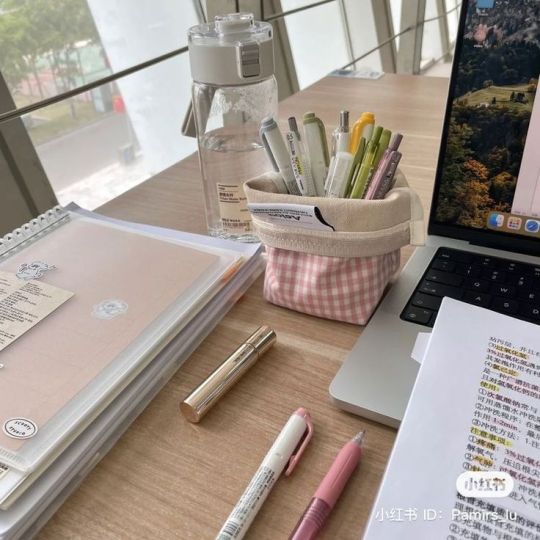
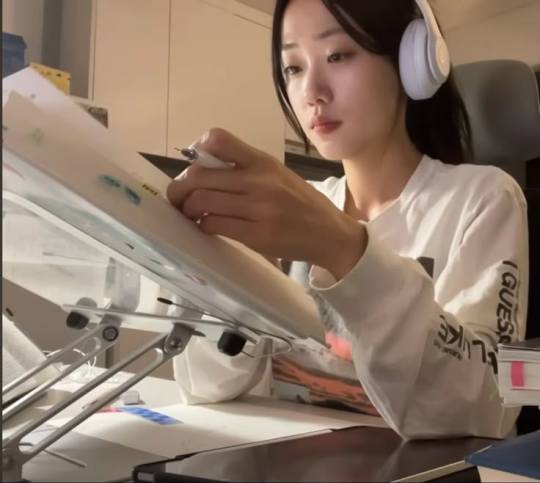
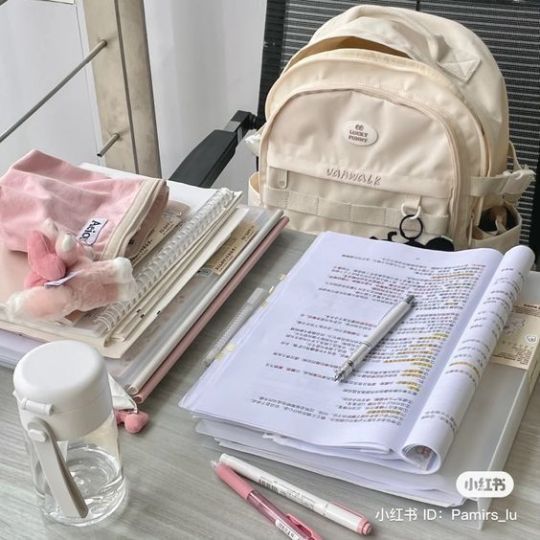

(don't mind the number formatting)
the neural bridging technique this is literally my favorite discovery!! instead of traditional note-taking, i create what i call "neural bridges" between different subjects. for example, when studying both literature + history, i connect historical events with the literature written during that time. i use a special notebook divided into sections where each page has two columns - one for each subject. the connections help you understand both subjects deeper + create stronger memory patterns!!
here's how i do it:
example:
left column: historical event
right column: literary connection
middle: draw connecting lines + add small insights
bottom: write how they influenced each other
the shadow expert method this changed everything for me!! i pretend i'm going to be interviewed as an expert on the topic i'm studying. i create potential interview questions + prepare detailed answers. but here's the twist - i record myself answering these questions in three different ways:
basic explanation (like i'm talking to a friend)
detailed analysis (like i'm teaching a class)
complex discussion (like i'm at a conference)
this forces you to understand the topic from multiple angles + helps you explain concepts in different ways!!
the reverse engineering study system instead of starting with the basics, i begin with the most complex example i can find and work backwards to understand the fundamentals. for example, in calculus, i start with a complicated equation + break it down into smaller parts until i reach the basic concepts.
my process looks like:
find the hardest example in the textbook
list every concept needed to understand it
create a concept map working backwards
study each component separately
rebuild the complex example step by step
the sensory anchoring technique this is seriously game-changing!! i associate different types of information with specific sensory experiences:
theoretical concepts - study while standing
factual information - sitting at my desk
problem-solving - walking slowly
memorization - gentle swaying
review - lying down
your body literally creates muscle memory associated with different types of learning!!
the metacognition mapping strategy i created this method where i track my understanding using what i call "clarity scores":
level 1: can recognize it
level 2: can explain it simply
level 3: can teach it
level 4: can apply it to new situations
level 5: can connect it to other topics
i keep a spreadsheet tracking my clarity levels for each topic + focus my study time on moving everything to level 5!!
the information architecture method instead of linear notes, i create what i call "knowledge buildings":
foundation: basic principles
first floor: key concepts
second floor: applications
top floor: advanced ideas
roof: real-world connections
each "floor" must be solid before moving up + i review from top to bottom weekly!!
the cognitive stamina training this is my absolute secret weapon!! i use a special interval system based on brain wave patterns:
32 minutes of focused study
8 minutes of active recall
16 minutes of teaching the material to my plushies
4 minutes of complete rest
the specific timing helps maintain peak mental performance + prevents study fatigue!!
the synthesis spiral evolution this method literally transformed how i retain information:
create main concept spirals
add branch spirals for subtopics
connect related concepts with colored lines
review by tracing the spiral paths
add new connections each study session
your notes evolve into a beautiful web of knowledge that grows with your understanding!!
these methods might seem different from typical study advice, but they're based on how our brains actually process + store information!! i developed these through lots of research + personal experimentation, and they've helped me maintain perfect grades while still having time for self-care, hobbies + fun!!
sending you the biggest hug + all my good study vibes!! remember that effective studying is about working with your brain, not against it <3
p.s. if you try any of these methods, please let me know how they work for you!! i love hearing about your study journeys!!
xoxo, mindy 🤍
glowettee hotline is still open, drop your dilemmas before the next advice post 💌: https://bit.ly/glowetteehotline

#study techniques#academic success#unconventional study methods#creative study tips#neural bridging#shadow expert method#reverse engineering study#sensory anchoring#effective studying#minimal study guide#glowettee#mindy#alternative learning#academic hacks#study inspiration#cognitive stamina#learning tips#study motivation#unique study strategies#self improvement#it girl energy#study tips#pink#becoming that girl#that girl#girlblogger#girl blogger#dream girl#studying#studyspo
80 notes
·
View notes
Text


{ 08.11.24 } · { 50 days of routine } · { day 10 }
I don't get the first exercise from week 2 of the CBT workbook. It's a “values and activities” form where you have to put in at least 2 values for each of the six life areas (relationships, education/career, recreation/relaxation, faith/meaning/expansion, domestic responsibilities, and physical health) and then come up with at least 3 activities that can fall under each value. And they define values as anything that has no end point AND that is something you enjoy, love, or get satisfaction from doing (e.g. brings pleasure or enjoyment, gives us a sense of mastery or accomplishment, and feels like it’s worthwhile) whereas “activities, in contrast, are specific and have a beginning and an end, though they can be repeated as many times as we wish.” Then they proceeded to give some examples of values which included things like “beautifying my living space”, “spending time with friends”, “enjoying good food”, and “feeling fit and strong.” I suppose I get the last two as “values” but aren't the first two more like activities??? I am confused™. And I'm pretty sure “completing all my schoolwork” would be an activity because it has an end point...BUT IT SURE ISN'T SPECIFIC!!! 😂 I guess a good chunk of this is just semantics. I also skipped ahead and read week 5 last night. The chapter was called “time and task management” and I'm stealing some activities from there 😈
Here's everything else I got up to today! I don't know why I'm using exclamation points!!!

So for the daily activities worksheets, besides listing out everything you do and when, you have to state how enjoyable each activity was on a scale of 0-10, the same for how important each activity was, and an overall mood rating for the day also on a scale of 0-10 and they didn't say how you were supposed to come to a single mood rating for an entire day, so i just took the average of my enjoyment column lol. Anyway, I noticed two things so far: (1) a lot of things that are important are not very enjoyable (ok, i kinda knew this one but seeing it so starkly confirmed my suspicions lol) and (2) shorter study sessions (under 90 mins-2h) tend to increase enjoyment just a bit unless I'm researching smth or writing/making a presentation which are the most likely activities to put me in a flow state. So to help me not feel sad about doing shorter sessions (i.e. not being able to focus that long and that happily most of the time), I need to get Forest plants that look pretty much the same whether I get 1 plant per session or the max of 4 lol. Also, today's overall mood rating was the highest it's been all week (4.7 as opposed to ~4 since I started tracking all this...i think it's because i had more study sessions that were shorter today than in the last few days)! 🥳 I'm so glad this (extremely) tedious activity was not entirely useless!!! 😌
#50 days of routine#studyblr#studyspo#study motivation#stem academia#stem student#stemblr#100dop#100 days of productivity#heyfrithams#heydilli#astudentslifebuoy#100 days of studying#100 days of self discipline#cognitive behavioral therapy#mental health#therapy#mental wellness#that girl#becoming that girl#it girl energy#glow up#becoming her#mittonstudies#studyingwithmila#self improvement#self care#self awareness#self reflection#healing
20 notes
·
View notes
Text

Hello after a long time :) Even though I was working hard, I wasn't posting here. I hope there will be more, let this post be a step.
An update: I started my master's degree in neuroscience :'
{Ladin}
#student life#studying#master student#study motivation#psychology studyblr#studyblr#study aesthetic#new studyblr#psychology student#studystudystudy#cognition#cognitive psychology#university studyblr#neuroscience#ladin
20 notes
·
View notes
Text
How I Deal with Tough Days When My Brain Won't Let Me Work
We all have those days where productivity feels impossible. It’s like no matter what we do, we just can’t seem to get started. I’ve come to realize that, for me, these days aren’t just about laziness or lack of motivation—it’s more complex. When I procrastinate, it’s often my creative brain, or what I like to call my “inner child,” throwing a tantrum.
Step 1: Understanding the Procrastination
The first thing I do is pause and try to understand what I’m running away from. Is it the overwhelming amount of work? In that case, I break it down into smaller, manageable bits. When the material feels boring, I add some fun—by creating colorful and funny interpretations of definitions or concepts. I turn words into weird characters, almost like a cartoon in my mind. Sometimes, I’ll turn it into a game, like seeing how many questions I can get right, or even trying new study techniques like rewriting a sentence or reading it out loud.
I find that when I’m bored, it’s a perfect opportunity to experiment. I might try drawing funny sketches of the material or use quirky interpretations to make it more interesting. The key is that I have to figure out what’s causing the procrastination—is it fear, perfectionism, or just the sheer volume of work?
Step 2: Naming My Inner Child
Once I understand what’s happening, I like to give my inner child a friendly name. This helps me communicate with it when things get tough. Every time I mess something up and feel like quitting, I know that it’s just my inner child reacting to the idea of perfectionism. Naming it makes it less scary, and I feel more in control of the situation.
A perfect example would be the time I noticed that my inner child shows up in my skincare routine, but not because I’m lazy—it's because I feel unmotivated when I don’t have enough of those colorful, trendy products, like the ones all over TikTok. You know, the Drunk Elephant skincare, with its fun packaging that every influencer seems to have. It taps into the same idea as “Sephora kids,” where even as adults, we’re drawn to overconsumption of things we don’t actually need, just because they’re colorful or trendy or aesthetically pleasing.
But I’ve realized that I don’t need fancy, colorful products to wash my face before bed. My inner child might crave those items, but recognizing that helps me let go of the unnecessary pressure to follow trends. I focus on the routine itself, rather than what’s missing from my shelf.
Step 3: Clearing the Distractions
Next, I clear my desk. Anything that’s not a school supply or a tool I need for work can be a distraction, especially if it’s colorful or unrelated to my task. I set a 5-minute timer and start working, just to show my inner child that it’s really not that scary. Once the timer’s up, I double it, taking short breathers in between. I repeat this until I feel like I’ve done enough for the day.
Step 4: Knowing When Enough Is Enough
After a certain point, I trust my own judgment. I ask myself honestly, “Is this enough for today?” If I feel like I’ve given it my best shot, I let go of the need to do more. I accept that some days will be harder than others, and that’s okay. The important thing is that I’m not fighting my inner child, but working with it.
It’s a simple process, but it’s effective. Instead of battling myself, I’ve learned to communicate with that part of me that gets overwhelmed, bored, or perfectionistic. By understanding and breaking things down, I can get through even the toughest days without feeling like I need to drop everything.
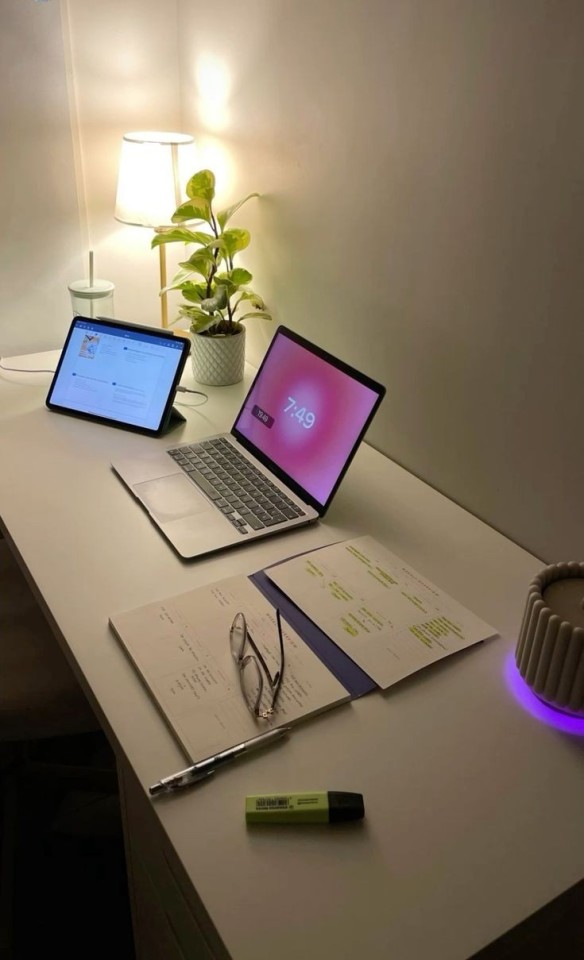
P.S.: I’ve struggled to stay productive most of my life, and a part of that was because I didn’t grow up in one of those aesthetically pleasing, western-style homes you always see on social media. I live in the Balkans, and my bedroom looked nothing like that. It wasn’t perfectly curated or full of trendy decor, but over time, I grew to love my culture and my surroundings. Even though I wasn’t the richest or living the most "aesthetic" lifestyle, I’ve learned that what I have is enough, and it doesn’t define my ability to be productive or happy.
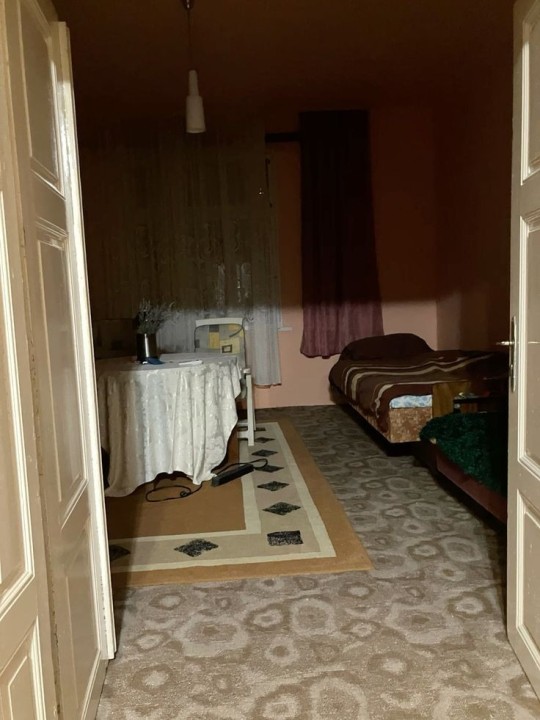
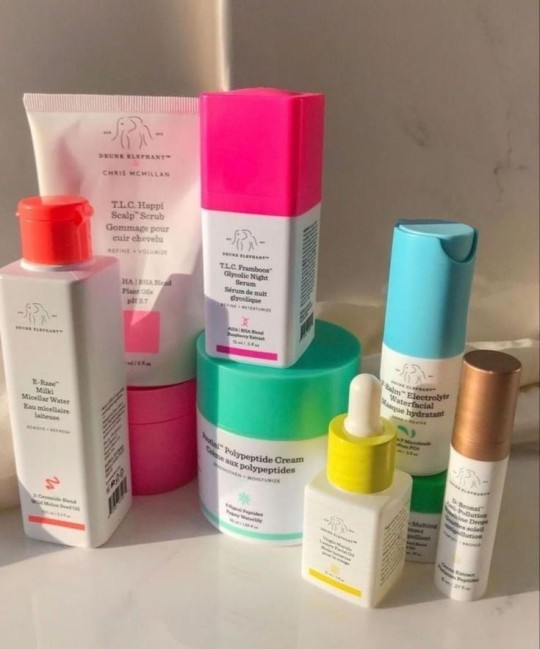
#productivity#productive#100 days of productivity#girlblogging#discipline#aesthetic#femininity#self care#self development#self help#self improvement#street style#bedroom#balkan#study blog#study motivation#student#studyspo#study aesthetic#study tips#study time#study#skincare#girl blogger#david goggins#psychology#cognitive#deep thoughts#ranting#study hacks
23 notes
·
View notes
Text
I still remember that poll I did where I was like "who's the bigger war criminal speirs or snafu?" and then speirs won.
#there were SO MANY layers to that poll that i wantednto interrogate#by what rules are we defining a war criminal?#why is it that speirs is more of one?#is it because ya'll think the bodies in which he enacted violence upon were less deserving of said violence?#as compared to the bodies snafu enacted violence upon (post-mortem)?#or is it because speirs was kind before he was cruel?#whereas snafu was not?#was it the color of their skin that swayed opinion?#was it the ethnicity of those they murdered (then desecrated) in the name of war?#where was the line drawn? where did ya'll draw the line?#truly the collective psyche of the hbo war fandom is. A Lot.#especially when you're in fandom circles that lean largely left in terms of politics#the cognitive dissonance is cognitive dissonance-ing#and it is FASCINATING#i want to study ya'll like a bug#please read the geneva convention
36 notes
·
View notes
Text
barton employing his ' dad voice ' whenever someone comes in because that seems to be, by far, the best way to calm someone down whenever they come into his clinic in AGONIZING pain + with an injury that needs dire attention is... idk. i have many feelings about it okok but whenever i say ' dad voice, ' i mean this very specific tone that barton used to use and sometimes still uses whenever his kids are just completely inconsolable that sounds like the gentlest thing ever while he's telling them that ' everything's going to be alright. i'm not going to let anything happen to you. ' 😭
and yes, this would apply to other rogues as well, especially if they have something that requires them to be put under anesthesia. because if you go under anesthesia whenever you're frightened... it's likely that you're going to wake up that way, too, which is something that he doesn't want. but yeah just thinking about this makes my heart kind of sad but happy at the same time bc barton actually is a GOOD doctor (with his bedside manner being surprisingly positive whenever it comes down to it and stuff ) ,, if only he were good all around
#OF MONSTERS AND MEN: musings.#YOUR NEED GREW TEETH: character study.#nooo but i'm not even sure how to explain it like i said but it just 😭 it gets me kind of emotional ok especially regarding the rogues-#bc like i'm sure they're expecting him to be downright BRUTAL to them because of who he is as a person but nah. man's doesn't believe in-#making people more upset by treating them badly in a clinical setting bc it just doesn't solve anything and is just bad-#practice in general you know? plusss at the end of the day like i've said a few times before barton is able to empathize with people-#cognitively and sometimes that's enough for him to actually be kind towards them. so yeahhh plus the fact that he still uses it on his kids#sometimes? the 'dad voice' i mean? BYEEE 😭😭 I AM WEEPING but i am most definitely putting this on my wishlist now bc i need ittt.#wishlist.
20 notes
·
View notes
Text
The other day I was having a "struggle day" with writing. Nothing I write is coming out fluid, it is sluggish and stilted. I spent a majority of my time writing outlines, trying to tether abstract images that flicker like a distorted slideshow across my brain to a more concrete tangible form.
But if I was to tell certain people in my life this, their first suggestion would be, "If you're struggling with writing, you should use ChatGPT to help you!"
Pushing past the ethics debacle aside for a moment, I don't know how to describe how much that doesn't help with my plight. As much as I dislike creating a rough draft, it is where the idea takes birth. It's through writing the initial scene where I discover a character's motivation or a facet of the world that never crosses my mind until I begin carving away at its rough edges.
The machine doesn't understand the way I'd take a plot point and expand upon it. The machine can't capture my exact phrasing. Technology hasn't developed enough to take a vague idea sloshing inside my skull and glimmer it into existence in front of me in exactly the way I wanted it to be.
I don't always enjoy the rough draft process, but it is a crucial part of the process. I don't want a "paint by numbers" experience. I want to start with a blank canvas and finish with a nauseating, illustrative kaleidoscope of my innermost thoughts and feelings. I want my hands to be stained by the ink and sweat of my own efforts.
I don't care if I get "lost in the past" for wanting that, I'd rather let my words be unfettered and untainted by the uniformity of what a machine thinks is the most "right" way of phrasing words based on trillions of words unrightfully seized by avarice.
#writing#writeblr#writers on tumblr#kat talks#Like I care deeply about AI scraping that is a huge concern#But as a comms major who has studied other 'communication revolutions' AI is not going away#Right now a majority of the population tinkering with AI has had experience formulating words without its aid#so they can take a prompt AI feeds them and they know how to modify it to fit their needs#but how will it effect the communication for those who are growing up with this?#Like I think even if you're not a writer there is value in learning how to put into words your thoughts and feelings on things#I fear kids just using AI and tweaking the prompt until it sounds more 'natural' and will struggle to write without it#hate to sound like 'kids with phones these days dont know how to talk but#it's worth considering how it could impact cognitive thinking for a future generation
19 notes
·
View notes
Text
university.. university leave me alone
#heres the situation: for my cognitive literary studies class (quite fun) we had to pick primary material and a cognitive angle to analyse it#from. and the deadline was coming up and i who have been thinking very intensely about robots for the last half a year picked#yeah you guessed it. fucking PIERS PLOWMAN. which is not fun for me but i panicked about the deadline#so now i have to do something about piers plowman and its cognitive literary properties#and im in hell this is hell i have been extremely stressed about piers plowman for a month. to the point where ive been in physical pain#AND I CANNOT. THINK OF ANYTHING. ABOUT PIERS PLOWMAN.#and the teacher for that class is so nice and chill and she was like you can pick anything at all. and i went with piers plowman#like it's interesting but from what COGNITIVE angle can i approach piers plowman.#ive been thinking about saying exactly this that piers plowman is more for historical linguists and theologists than narratologists but im#also positive plenty of scholars read piers plowman for the plot#so then i thought about the characters and whether you can Connect with them and whether they help you Immerse yourself in the story and#other terminology i learned in cognitive literary studies class.#theyre allegorical and very 1 dimensional and there could be something about whether we from 2024 understand them in the same way#people from the 14th century did. like this was what i put in my proposal when i made it#but now i actually have to make the slides and use cognitive literary papers for this and it's just not going at all. i cant do it.#i cant do anything i cant enjoy the daylight and the warmer weather i cant think about anything other than im not making progress on this#and it's bad for me!! it's bad for my health i feel bad. why did i go with piers plowman why did i not pick watership down#my post#i have plenty to say about watership downm cognitively.#also about old possums book of practical cats#maybe i could email her and tell her id like to change it.. no#ive also been reading the tombs of atuan which is incredible
18 notes
·
View notes
Text
Also a lot of people simply have terrible taste. But that is much easier to shrug off as people simply having terrible taste
#yes this is about that poll#‘the prose in heart of darkness is sooo dry and boring’ my god you all are weak and furthermore your hater game is weak#incredibly fucking racist? yes. a horrifying case study in imperialist cognitive dissonance? yes.#but as a conrad hater the man could turn a phrase i fear#lit tag#my posts
18 notes
·
View notes
Text
COVID-19 vaccine refusal is driven by deliberate ignorance and cognitive distortions | npj Vaccines
Abstract Vaccine hesitancy was a major challenge during the COVID-19 pandemic. A common but sometimes ineffective intervention to reduce vaccine hesitancy involves providing information on vaccine effectiveness, side effects, and related probabilities. Could biased processing of this information contribute to vaccine refusal? We examined the information inspection of 1200 U.S. participants with anti-vaccination, neutral, or pro-vaccination attitudes before they stated their willingness to accept eight different COVID-19 vaccines. All participants—particularly those who were anti-vaccination—frequently ignored some of the information. This deliberate ignorance, especially toward probabilities of extreme side effects, was a stronger predictor of vaccine refusal than typically investigated demographic variables. Computational modeling suggested that vaccine refusals among anti-vaccination participants were driven by ignoring even inspected information. In the neutral and pro-vaccination groups, vaccine refusal was driven by distorted processing of side effects and their probabilities. Our findings highlight the necessity for interventions tailored to individual information-processing tendencies.
#covid#study#vaccines#vaccone hesitancy#misinformation#disinformation#willful ignorance#deliberate ignorance#cognitive distortions
8 notes
·
View notes
Text
Breakthrough in Fly Brain Research Paves Way for Understanding Human Cognition
Scientists have achieved a monumental breakthrough by mapping the fly brain, revealing the position, shape, and connections of all its 130,000 cells and 50 million intricate connections. This research represents the most detailed analysis of an adult animal's brain to date and is being hailed as a "huge leap" in understanding human cognition.

The fly's brain, though tiny, supports a range of complex behaviors, including walking, hovering, and even producing mating songs. Dr. Gregory Jefferis, a leader in the research from the Medical Research Council's Laboratory of Molecular Biology in Cambridge, emphasizes that this mapping could illuminate the mechanisms behind thought processes in humans. He noted the lack of understanding about how brain cell networks facilitate our interactions with the world.
Despite humans having a million times more neurons than the fruit fly, the new wiring diagram, or connectome, will aid scientists in deciphering cognitive functions. Published in the journal Nature, the imagery showcases a stunningly complex structure that reveals how a small organ can perform powerful computational tasks.
Dr. Mala Murthy, co-leader of the project from Princeton University, stated that this connectome will be transformative for neuroscientists, allowing for a better understanding of healthy brain function and the potential to compare it with malfunctioning brains.
Dr. Lucia Prieto Godino from the Francis Crick Institute supports this view, highlighting that while simpler organisms like worms and maggots have had their connectomes mapped, the fly’s intricate wiring is a significant achievement. This success paves the way for mapping larger brains, potentially leading to a human connectome in the future.
The research team has successfully identified separate circuits for various functions, illustrating how movement-related circuits are positioned at the base of the brain, while those responsible for vision are located on the sides. The study not only identifies these circuits but also explains their connections, enhancing our understanding of neural processing.
Interestingly, researchers are already applying these circuit diagrams to understand why flies are so hard to catch. The wiring related to vision quickly processes incoming threats, sending signals to the fly's legs to jump away faster than conscious thought.
To create the wiring diagram, researchers used a technique involving slicing the fly brain into 7,000 incredibly thin pieces, photographing each slice, and digitally reconstructing the whole. They employed artificial intelligence to analyze neuron shapes and connections, correcting over three million errors manually.
Dr. Philipp Schlegel from the Medical Research Council highlights that this data serves as a comprehensive map of brain connectivity, akin to a detailed Google Maps for the neural networks. This combined information will facilitate countless discoveries in neuroscience in the coming years.
While a human connectome remains elusive due to the complexity of the human brain, researchers believe that advancements in technology may allow for such mapping in about three decades. The fly brain research marks a significant step toward unlocking the mysteries of human cognition and understanding our own minds better.
The study was conducted by the FlyWire Consortium, an international collaboration of scientists dedicated to advancing neuroscience.
#fly brain#neuroscience#connectome#research breakthrough#cognition#insect brain mapping#neural networks#scientific discovery#MRC#fly brain study
6 notes
·
View notes
Text
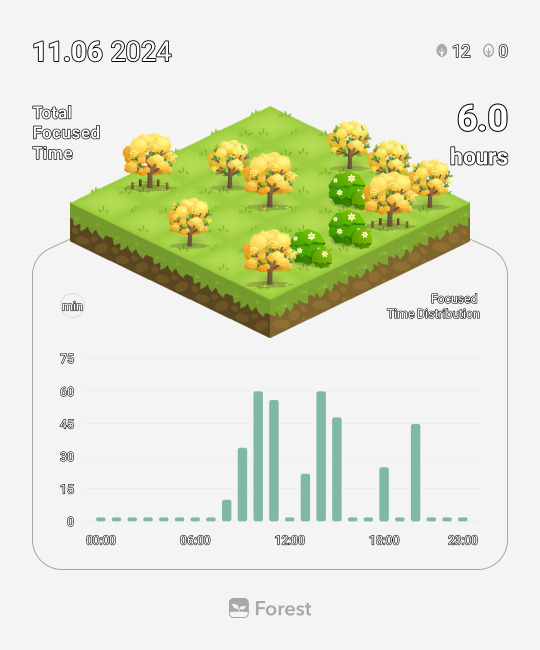
{ 06.11.24 } · { 50 days of routine } · { day 8 }
i have to fill in a daily activities sheet for four days as part of the CBT workbook 😑 so for the next four days, you'll be suffering along with me, seeing my messy handwriting 😂
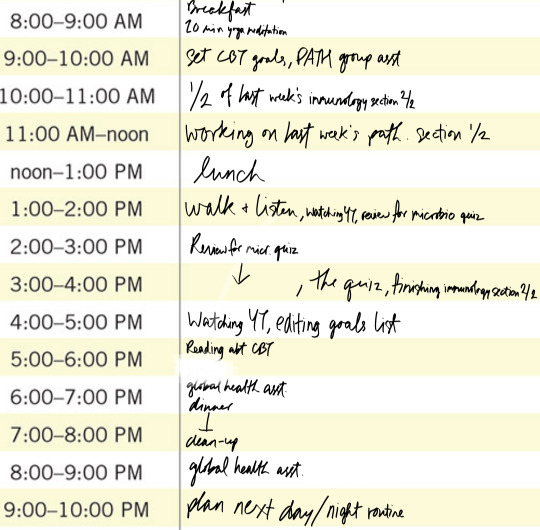
as you can see, i probably used my phone way too much today compared to the amount of stuff i have to do 🙃🥲🥲🥲 idk, what do you do when your brain needs a break and your body just really doesn't want to do anything either? 😅 i fear if i lay in bed to decompress, i will never want to leave it lol 😂
also. i have reached a new record. 90 tabs on my laptop browser. 🥲 (dw, i expect a good chunk of it will go away when i'm done with the global health assignment...only to go back to an insane number when i start the next one soon)
🎧 yesterday once more / i won't last a day without you – the carpenters
#studyblr#stemblr#stem academia#stem student#100dop#100 days of productivity#studyspo#study motivation#50 days of routine#100 days of studying#100 days of self discipline#mittonstudies#astudentslifebuoy#becoming that girl#yoga#mental health#therapy#cognitive behavioral therapy#studyingwithmila#heyfrithams#heydilli#self improvement#self development#self care#self love#that girl#it girl#health and wellness#lifeblr#lifestyle
20 notes
·
View notes
Text

Also, I *did* draw Gojo but I used him to practice cognitive drawing :)
It is so funny because I could not remember what he looked like AT ALL from memory the first time, who is that man? Idek
I meant to practice more but I am still low energy so this is as far as I got yippee
13 notes
·
View notes
